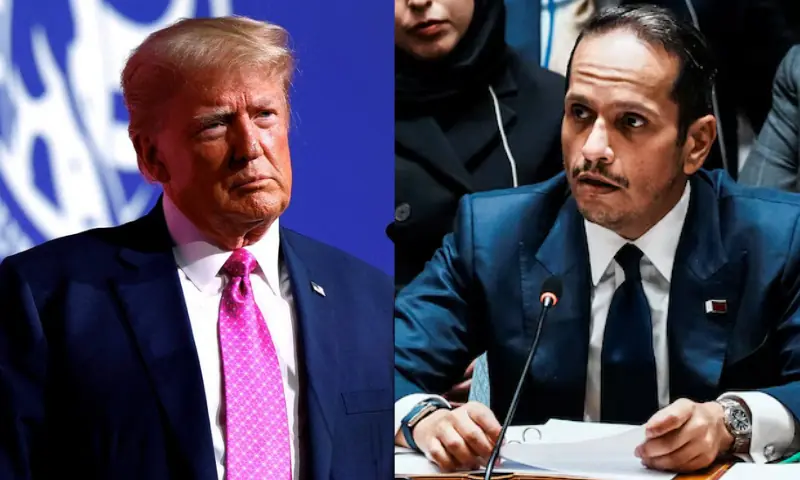Qatar's Prime Minister Meets with US Officials Over Israeli Strike
Qatar's Prime Minister met with top U.S. officials, including President Trump, in Washington on September 12, 2025, to address Israel's recent strike on Hamas leaders in Doha and its impact on Gaza cease-fire negotiations.

Qatar’s Prime Minister, Sheikh Mohammed bin Abdulrahman Al Thani, held urgent meetings with U.S. President Trump, Vice President JD Vance, and Secretary of State Marco Rubio in Washington, D.C., on September 12, 2025, following Israel’s controversial strike on Hamas leaders in Doha earlier in the week. The talks, which also included a scheduled dinner with Trump and Special Envoy Steve Witkoff, focused on the fallout from the Israeli operation, which Qatar condemned as a violation of its sovereignty and a blow to ongoing mediation efforts between Israel and Hamas.
According to U.S. and Qatari officials, the Israeli strike targeted senior Hamas figures allegedly responsible for the October 7, 2023, attacks, but also resulted in the death of a Qatari security official. Qatari leaders described the attack as “not only an assault on the State of Qatar but an assault on the very essence of diplomacy and the pursuit of peaceful solutions,” as relayed by Al Thani at the United Nations. The Qatari government expressed deep anger and a sense of betrayal, with a senior adviser stating that the negotiations for a Gaza cease-fire were now “dead” under current conditions, and accusing Israeli Prime Minister Benjamin Netanyahu of sabotaging peace efforts.
The U.S. administration, while reaffirming its commitment to Israel’s security, expressed concern over the timing and manner of the strike. President Trump stated he was “not thrilled” about the operation and assured Qatar that such incidents would not recur, directing Secretary Rubio to expedite a defense cooperation agreement with Doha. The White House acknowledged that notification of the strike came too late to prevent it, despite the presence of the largest U.S. military base in the region on Qatari soil.
The meetings in Washington and a planned follow-up in New York with U.S. and Qatari officials, including Special Envoy Witkoff, aimed to repair strained ties and revive stalled negotiations. The U.S. emphasized the importance of Qatar’s mediation role and the need to bring hostages home, while also seeking to maintain strategic security cooperation in the Gulf.
On the ground in Qatar, public anger was palpable, with funerals held for those killed in the strike and officials warning that the attack had undermined any positive trajectory in the peace talks. Meanwhile, the situation in Gaza remained dire, with ongoing Israeli military operations and mass displacement of civilians. Hostage families and some Israeli reservists have also voiced frustration, accusing Netanyahu of prioritizing political interests over a resolution to the conflict.
As diplomatic efforts continue, the incident has exposed deep rifts between key regional and international actors, raising questions about the future of U.S.-Qatar relations and the prospects for ending the war in Gaza.